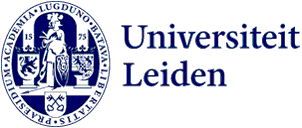
Stories from Europe’s borderlands: A podcast series about living with, and resistance to, Europe's borders
In the upcoming months, PhD candidates Neske Baerwaldt (FdR / VVI) and Wiebe Ruijtenberg (FSW / CAOS) will produce the ethnographic podcast series ‘Grensverhalen’. The series will be published online in September, and will be used as teaching material in various courses.
When we think of Europe's borders, we tend to think of crowded boats in the Mediterranean Sea, or of anonymous people climbing the fence at the border between Morocco and the Spanish enclave of Ceuta. 'These images bring into view an important aspect of Europe’s borders,' Baerwaldt explains, 'but they tend to leave other aspects undiscussed while portraying migrants in a one-dimensional way. In our podcast, we try to make room for a more in-depth dialogue about the structures of inequality that cause certain people to take these dangerous routes while others simply board a plane. Together with our guests, we will look for connections between the contemporary workings of Europe's borders, the workings of other forms of inequality, colonial histories, racism, extraction of raw materials and accumulation of capital, labour exploitation, and forms of resistance.'
Europe's borders are continuously multiplying, Baerwaldt and Ruijtenberg explain. They stretch from visa offices around the world to flows of money that finance detention centres in Libya. They pop up when you are asked for your ID at the hospital, when you are stopped by the police for a broken bicycle light, and when you take on work where you toil 14 hours a day for less than the minimum wage. These visible manifestations of Europe's borders are rooted in less tangible legal, technological, and financial infrastructures. These infrastructures categorise us into those for whom mobility is becoming cheaper, easier, and safer, and others for whom mobility is becoming more expensive, dangerous, and deadly.
In the podcast series Grensverhalen, Baerwaldt and Ruijtenberg investigate these multiple manifestations of borders by interweaving interviews, sound clips and music. They talk to people who deal with borders in their daily lives: migrants, activists, lawyers, humanitarians and academics. In each episode they focus on the story of one of their guests, while asking other guests to respond to that story. By focusing on personal narration, they hope to create space for emotion, closeness, and polyphony.
According to Ruijtenberg, podcasts are an excellent medium for these purposes. 'Podcasts are intimate. They bring people's life-worlds closer and let listeners feel what it is like to view the world from another person’s perspectives. You can learn a lot from a tone of voice, a silence, or a laugh. Moreover, ethnographic podcasting emphasises polyphony. It shows how different people experience, process and represent a phenomenon. This means contradictions can emerge that are not necessarily resolved. So there is something unruly in it. This makes podcasts valuable, because the listener is placed, as it were, in the space in which the conversations between us and our guests take place.'
Based on their podcast series, Baerwaldt and Ruijtenberg will develop two teaching packages: a package on borders and migration, and a methodological package on ethnographic podcasting as a research method. Both teaching packages will be integrated into different courses in the upcoming academic year (2021-2022). 'We are very enthusiastic about passing everything we will learn on to our students,' Baerwaldt and Ruijtenberg say.
This project is made possible by the Elise Mathilde Fund of the Leiden University Fund, the interdisciplinary research program Social Citizenship & Migration (Leiden University), the VVI, and the CAOS. It is also part of the 5-year research project 'Getting to the Core of Crimmigration' (project number 452-16-003), which is financed through the VIDI research scheme by the Dutch Research Council (NWO).
For more information about this project, send an email to n.baerwaldt@law.leidenuniv.nl or w.d.ruijtenberg@fsw.leidenuniv.nl.
